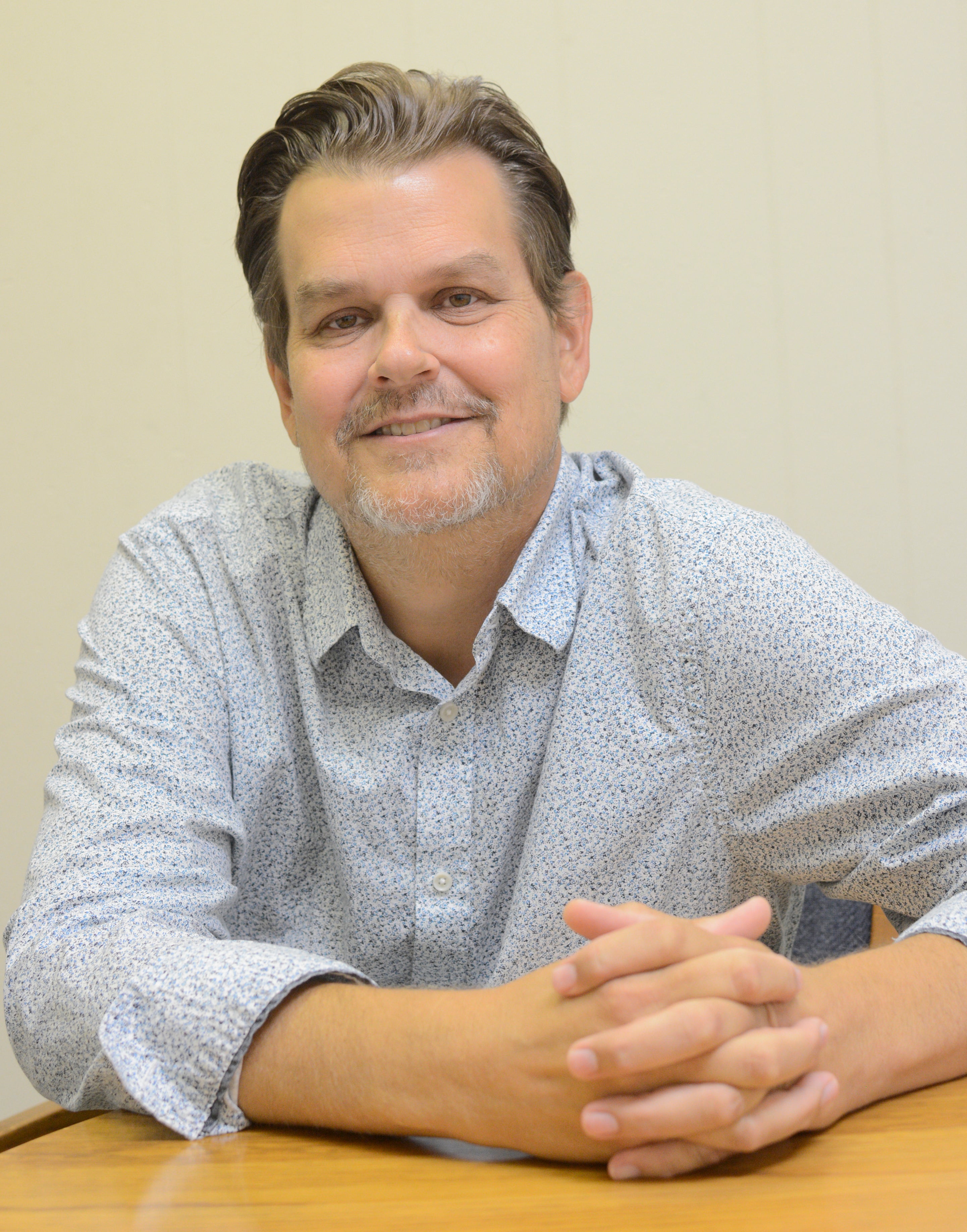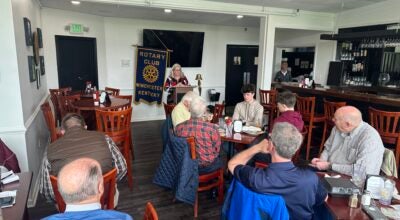Todd Denham shares story of cancer struggle during National Prostate Health Month
Published 2:07 pm Monday, September 21, 2020
|
Getting your Trinity Audio player ready...
|
Most of us, if we think of prostate cancer, think of it as an older man’s illness. It’s true that half of men between 70 and 80 years have histological evidence of the disease.
It can, however, also strike younger men.
Todd Denham was only 46 when he was diagnosed.
Today, he has no evidence of the disease, but it has been a long and difficult struggle, and one that has made him more aware of the importance of early diagnosis and treatment.
“It’s normally a slow-moving type of cancer,” Denham said.
If it’s discovered early enough and it’s encapsulated within the prostate, removal of the prostate “usually takes care of it.”
That wasn’t his experience however.
Denham, a husband and father, learned he had the illness on June 26, 2017.
For a couple of months, he had been experiencing frequent urination, so he made an appointment with his physician, Dr. Charles “Jack” Arnold at Clark Clinic, and a day or two before he was to see the doctor, he noticed his testicles were swollen.
“I thought that was weird,” he remarked.
At the doctor’s office, he said, “I walked into the bathroom to do a urine sample, and nothing but blood came out. It was shocking.”
Denham had some blood work done, and the doctor told him that “everything checks out except your PSA.”
That number was 800. The normal level for the prostate-specific antigen blood test is between zero and four. Not 400. Four.
Arnold sent him to Dr. Freddie Terrell, a urologist, who told him he was concerned he might have cancer and ordered a battery of tests.
The results confirmed he had stage four metastatic prostate cancer. Its aggressiveness on a scale of one to 10 was nine.
“That was terrifying,” he said.
Denham met with specialists at the University of Kentucky about his treatment options, which were limited.
“Once it leaves the prostate, it’s not really curable,” Denham said.
In his case, it was in most of his lymph nodes and his spine.
One doctor told him he wasn’t a candidate for prostate removal because the cancer had already spread.
“He said, ‘You’re not really a candidate for chemotherapy, and radiation is out of the question because there’s too much to treat,” he recalled.
The prostate is a gland that creates one of the fluids that make up semen. Prostate cancer’s “main food source,” Denham said, is testosterone, the male hormone that stimulates the sex drive and sperm production. Doctors treated Denham with two testosterone blockers, Lupron and Zytiga.
“I tell folks that I’m turning into a middle-aged menopausal woman,” Denham quipped, displaying the characteristic “black humor” that has helped him get through his ordeal.
The side effects, he said, can be “hot flashes,” fatigue, brittle bones and muscle loss.
It can also have an impact on a man’s mental state.
Denham experiences depression and takes medication to treat it.
“I would just sit and cry at GEICO commercials,” he joked.
“You never really feel like your old self,” he added.
Denham found a support group in Lexington that is a chapter of UsToo.org, and another one on Facebook simply called Prostate Cancer Support Group.
That proved to be a turning point. On social media, Denham described what he had and said he was “looking for a second opinion.”
One of the experts whose name came up several times was Dr. Eugene Kwon of the Mayo Clinic in Rochester, Minnesota, who agreed to accept him as a patient.
Kwon told him he didn’t have a garden variety prostate cancer, and said: “You need to get aggressive.”
Denham was ready for the fight. He did six rounds of two kinds of chemotherapy at Clark Regional Medical Center between December 2017 and the following March.
“I went back to see Dr. Kwon, and he said, ‘You have responded very well to the chemo. I do not see any evidence of cancer in your lymph nodes.’ Which to me, that’s my own little miracle. I just lost it emotionally,” Denham said.
He continued taking Lupron and Zytiga and did 28 rounds of radiation therapy on his prostate last summer at Baptist Health. He was supposed to go back to Mayo in March, but the coronavirus pandemic delayed that. He is expected to go back in October.
Denham won’t say that he is cured.
“As of right now, today, I have no evidence of disease,” he said.
That’s enough to give him hope.
What has helped him get through it all are the love of his wife Roni-Anne and daughter, Makenna, his faith, and significantly, the support of other men who have been through it themselves.
“When I was first diagnosed, I was floored by how many men in Clark County reached out to me who have had prostate cancer,” he said.
Denham, who will be 50 in November, has been executive director of the Winchester-Clark County Industrial Authority for 16 years, so he is well known in the community.
“That community support for me was very humbling,” he said. “This is not a disease that men talk about.”
But other men have been willing to talk with him, and he wants other men to know that “if they need somebody to talk to, they can reach out to me,” he said.
He said he has talked with men about it, and for some, he’s the only one outside their immediate family who knows.
“I try to share my experience and be positive and upbeat,” he said. “I think I’ve had a pretty good attitude through all this.”
Denham said it’s important to remember that the struggle with cancer is hard for caregivers, such as wives, and they, too, need support.
And he urges people to be careful about what they say. One thing people say, and they mean well, but it comes across as hurtful, is: If you’re going to get cancer, that’s the one to get.
If they only knew.
“I think sometimes people don’t know what to say, but don’t say that,” he asked.
Prostate cancer is especially hard for men to go through.
The friends he has made around the country, however, have made it a little easier.
“I think the Lord has blessed me in so many ways,” he said. “I do think God has answered so many prayers for me.
“I really do think it’s my own little miracle.”







